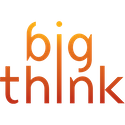As featured in the Island Packet:
Throughout the ages, various religions have provided allegorical accounts as to how our existence came into being. To this day, our scientific understanding of the origins of the universe is communicated in ways that fail to exemplify the totality of the universe’s grandeur and complexity. This is an understandable constraint of our current human reality and may always be, in some way, a limitation of the human condition. As a result, the allegory of religion serves an important role in our ability to understand the present and imagine the future.
In the Judeo-Christian tradition, for example, God speaks order into existence. Some theologians have historically contended that God created the world “ex-nihilo” (out of nothing), but the Bible doesn’t seem to indicate this. Instead, what we read is that God orders the material of existence in ways that make it conducive to life.
From a scientific standpoint, this makes sense. Many scientists have contended that every particle in existence is computational in nature. That means that, in a way similar to how a smartphone or a computer interprets and orders information, the information of the universe may be ordered so that it functions like a giant quantum computer. In the allegory of existence then, God would serve as the universal programmer.
In the Biblical myth, humans are created in God’s image and are invited into this creative organizational process. We, from a different level of observation, experience and participate in the intentional ordering of the world around us. Trees are transformed into chairs. Grain is ground into flour and ordered with other ingredients to be baked into bread. Metal is refined from the earth and turned into cars, skyscrapers and computers. We are creative, ordering beings like the depicted Creator.
In the New Testament, we read of such human and Godly ordering. We are told of a virtual changing of humans’ environment. Jesus orders disease into health, changes water into wine, causes a fig tree to whither and even transforms water into a state that allowed him to walk on it. Sure, it is easy to dismiss such activity as exaggeration or fable, but if the universe is a quantum computer of sorts, then science might have something radically different to explain such events.
And, similar to the creation narratives, both the Old Testament and the New Testament tell of how humans are active participants in such material reordering as well. God’s followers also heal people of various ailments, walk on water, part a sea, raise the dead, the list goes on and on.
Again, all of this might be easy to dismiss as just embellished or misinformed accounts. But what if they aren’t? What if our belief is tangibly able to reorder our environment and change our world? What if our efforts, thoughts and attitudes really do affect how we experience existence?
Maybe our situations, our relationships and even our health are dependent on our conscious reordering of our environment. Think and act in a positive manner and get an ordered result. Think and act in a negative manner and get disordered chaos.
If science finds this idea to be the case, it could radically affect the world we live in. How we teach could change. How we report the news could change. How we live our lives could change.
This of course, raises a question for us as individuals and as a community: “How are we going to order the world today?”





























sound a little like quantum theory you are bandying about there, Chris.
Discussion of quantum theory always makes me nervous because I find it hard to distinguish between quantum mechanics and New Age gobbledygook. I mean, the notion that a thing can only achieve thingness i sthat is must first be observed strikes me a little like Stephen Hawking’s assertion that the universe created itself because it needed to create itself. Riiiiiight. And then there is the notion that a second thing separate from the first thing can become the opposite of the first thing but only when we observe it…sounds to me a little like dividing by zero. Sure, you can do it, but is there any meaning in the answer? In the quantum world space and time don’t exist…at least not that we can observe. It’s as though a chair is only a chair when we are sitting on it and the chair doesn’t come into existence until we decide to sit down. If the real world was like the quantum there would be no such thing as acceleration. There would be stop and fast with nothing in between. For every white car with air bags there would be a red car with pointy spiked bags. Water would either be frozen or boiling, perhaps both at once. No one would ever go anywhere because everything is the same at the same time everywhere and you wouldn’t be able to trust the ice in your drink to keep it cold. Sip carefully lest you burn your lips on the ice. This kind of thinking, as it usually does, leads to a number of counterintuitive suppositions. One goes something like this- for every decision made the universe splits to accommodate. I sort of like this one. I like to think in another universe I’m the mayor of Europe, there is a key on my calculator that will give me the square root of negative 1, I may divide by zero until the cows come home, and the cows come home fully cooked and falling off the bone delicious and are now classified at a subatomic level as a vegetable (but only when we’re not looking) and I therefore no longer need to take statin drugs.